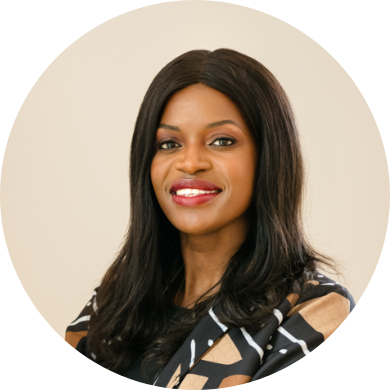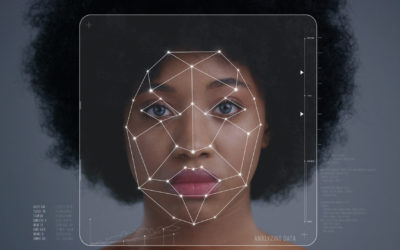Almost every organization has had some form of inclusive leadership training. However, training and bringing awareness to diversity, equity and inclusion is only part of the solution. Leaders need to learn how to put the knowledge acquired into action and this is where inclusive leadership coaching comes in. Through intensive, one-on-one inclusive leadership coaching, leaders can learn how to turn their organizations into inclusive workplaces that support, empower, and inspire employees from all kinds of backgrounds.
Why diversity and inclusion?
Diversity and inclusion are being ranked as important issues at the workplace. According to a Deloitte report, 69% of leaders rate diversity and inclusion as an important issue, a 10% increase from 2014. Organizations that thrive are increasingly relying on diverse and multidisciplinary teams. Organizations that combine different genders, cultural heritages, and generations observe diversity. Further, they reap more from diversity by treating people respectfully, fairly, making them feeling like they belong and inspiring them.
Why inclusive leadership?
Further research shows that teams with inclusive leaders are 17% more likely to report high performance, 20% more likely to make high quality decisions, and 29% more likely to report collaborative behavior. The same report found 10% improvement in work attendance reducing absenteeism in organizations where employees feel included.
Another Deloitte report showed that inclusive leaders help employees have individual feelings of inclusion. The study showed employees experience 70% increase in experiences of fairness, respect, value, belonging and safety when their leaders are inclusive.
There have been some traits associated with inclusive leaders. Such as;
1. Commitment
When leaders are authentically committed to diversity and inclusion, they follow up on their words and policies made. They challenge the status quo and hold themselves and others accountable for their actions. They commit that every decision and activity within the organization will be to support diversity and inclusion.
2. Modesty
Inclusive leaders are modest and humble about what they know and what they don’t know. They are ready to learn how to make the work environment better. They don’t claim to understand what’s best for everyone but seek to understand how to include and create a better work environment for all.
3. Self-awarness
Inclusive leaders are self-aware, understand that they have strengths and limitations like everyone else. Knowing this, they are not afraid to confront possible blind spots that can lead to bias. A self-aware leader is knowledgeable of the fact that they might be naturally inclined to people who are like them –similar background, culture, gender- and possibly be biased and are open to creating a system that will reduce bias.
4. Celebrate Differences
Inclusive leaders openly celebrate how different people are in an organization since it is the differences that make people special. They are open to learning about others, what their strengths are, open to listening and understanding and open to letting everyone bring out their genuine self at the workplace.
5. Transformational
Inclusive leaders readily empower others using individual consideration. They don’t perceive the whole group as one but understand that each individual is unique and seek ways to empower each person through what makes them unique.

Two colleagues talking and working with their manager
Why inclusive leadership coaching is good for business ?
1. Help leaders understand their role in diversity, equity and inclusivity.
Most leaders understand what diversity, equity and inclusivity are, but are often unsure of what their role is to create an inclusive workplace. Research showed that only about a third of leaders saw their inclusive leadership capabilities as others did, another third overrated their capabilities and a final third underrated their capabilities.
A leader may be thinking they are doing everything right when it comes to inclusivity only to find out that they are not creating the right inclusive environment at their organization. Through leadership coaching, leaders can check their inclusivity, how it’s viewed by others and learn how they can make the people at the organization know that the leader prioritizes inclusion.
2. Help identify possible blind spots
As seen in the Deloitte research, a third of leaders overrated their level of inclusivity. This can be due to possible blind spots. We have blind spots when we are unaware of some of our thoughts and behaviors and yet they are visible to others. Blind spots can lead to biased decision-making.
Through coaching, leaders can learn of some of their possible blind spots, such as unconscious bias. As a leader, it’s possible to think that you are ticking the inclusivity checklist but your blind spots hinder you from seeing bias in your decision making. For example, a leader could be supporting an inclusive organization but due to unconscious bias, could be hiring people with a similar background to hers, unaware that they naturally gravitate towards such individuals. Through coaching, a leader can identify possible blind spots and create systems to help navigate such situations.
“About 50% of millennials would leave the workplace for an inclusive one and a third of the respondents showed they had already done so.”
3. Help attract and retain the right talent
Research shows that about 50% of millennials would leave the workplace for an inclusive one and a third of the respondents showed they had already done so. The new workforce, especially the millennials and generation Z are more vocal about inclusivity and are not afraid to demand an inclusive work environment.
Through leadership coaching, a leader learns how to make the workplace more inclusive to attract and maintain the best talent. When employees believe that their organization is inclusive, they are more engaged, committed, and authentic in what they do.
4. Foster creativity and innovation
A Forbes report showed that 85% of organizations agree that diversity and inclusion lead to increased creativity and innovation. When a team has individuals from different backgrounds, genders, ages and cultures, they approach situations from different angles and are likely to arrive at a solution that will work for many. On the other hand, homogenous teams are likely to approach a problem from a similar ground and therefore their possible solutions are within a narrow range.
Through inclusive leadership coaching, leaders can learn that the more diverse a team is, the more it is likely to get creative, innovative and create solutions that will serve a wider population. The differences in the people become an asset as due to their different backgrounds and experiences, they have different ways of solving problems. Through coaching, a leader can learn to open their mind to diversity, equity and inclusion and offer their organization a chance to benefit from it.
5. Leadership development
A leader may know all about diversity, equity and inclusivity by lack the know-how of making it work for the organization. Through coaching, leaders can learn leadership development and how to pass on known skills to the rest of the leaders within the organization.
Through leadership development, top leaders can foster an inclusive work environment by helping other leaders within the organization actualize inclusivity at their different departments. Coaching leaders at different organizational levels is essential so they learn how to put inclusivity in action in their daily activities at the workplace.

6. Encourage leaders to seek feedback
It is essential for a leader to find out if they are perceived as inclusive, especially by people who are different from them. A person can think they are inclusive in their actions but others, especially the minorities at the workplace do not think so.
Through inclusive leadership coaching, a leader can learn of possible development areas and accept that they might indeed, have some shortcomings regarding their inclusivity efforts. Coaching encourages leaders to seek feedback, have regular check-ins with their teams and learn more on how to make each individual feel included no matter what their background is.
“Everyone else is doing it” is never a good enough reason for someone to do something, but in this case, it is.
7. Everyone else is doing it
“Everyone else is doing it” is never a good enough reason for someone to do something, but in this case, it is. More and more organizations are taking diversity, equity and inclusion seriously and reaping the benefits of creating inclusive organizations. Research has shown that organizations that practice inclusion in their hiring, evaluation, development and leadership activities are enjoying greater revenues and profitability than their competitors.
Inclusive leadership coaching for all levels or leaders within the organization creates a better working environment that fosters commitment, employee satisfaction and therefore improved performance for each individual.
Conclusively, any modern organization seeking to improve performance, profitability and overall efficiency should consider continuous inclusive leadership coaching. Gone are the days when we could put together a one-time inclusion training event and call it a year. Today, more than ever, there is a need to commit to diversity, equity and inclusion efforts in every organization. The workplace is getting more and more diverse and people want to feel included, and genuine so, not through occasional events. Leaders need to incorporate inclusion efforts in the organization’s day to day activities. Through leadership coaching, leaders can know how to prioritize inclusion and practice it throughout the organization till the firms become completely inclusive and committed to making the workplace a better place for everyone in it regardless of their background, culture, age, gender and any other difference.
ABOUT THE AUTHOR

Dolores Crazover, founder and CEO at DEI & You Consulting
She is a leading advocate, certified diversity, equity and inclusion (DEI), and inclusive leadership consultant /facilitator. She is passionate about empowering others, science, technology (⧣womaninSTEM) and entrepreneurship. Dolores is also a multilingual public speaker covering diverse aspects of DEI (women in leadership, in tech, leading with inclusivity,…) and has spoken at major events hosted by entities such as Women’s Leadership Network (Estée Lauder Companies), and HUB Institute (Sustainable Leaders Forum).
She supports organizations and individuals in unlocking their full potential by leveraging authenticity, DEI, improving collaboration, bringing together collective intelligence as tools for economic growth and corporate sustainable healthy culture shift for all to thrive.
Dolores is a Microbiology-Biotechnology Engineer by trade who loves to code in her free time.
Contact us today to learn more about our consulting services or our workshops: www.deiandyou.com
Redefining Activism: New Trends in Allyship for the Upcoming Years
Picture a chessboard. At its center, two pieces stand mirrored, symbolizing the strategic interplay of equity and inclusion, the key...
Navigating DEI in Tech: 4 Steps Towards Ethical Algorithms and Inclusive Data Privacy
In our fast-paced, technology-driven world, personal data has become a hot topic. Every click, every purchase, every post - they all...
Maximizing DEI Metrics: 5 Ways to Elevate Your DEI Strategy Through Data Collection
Four ascending bar graphs measuring the DEI metrics of your organization When diversity, equity, and inclusion (DEI) work is...
Redefining Activism: New Trends in Allyship for the Upcoming Years
Picture a chessboard. At its center, two pieces stand mirrored, symbolizing the strategic interplay of equity and inclusion, the key...









